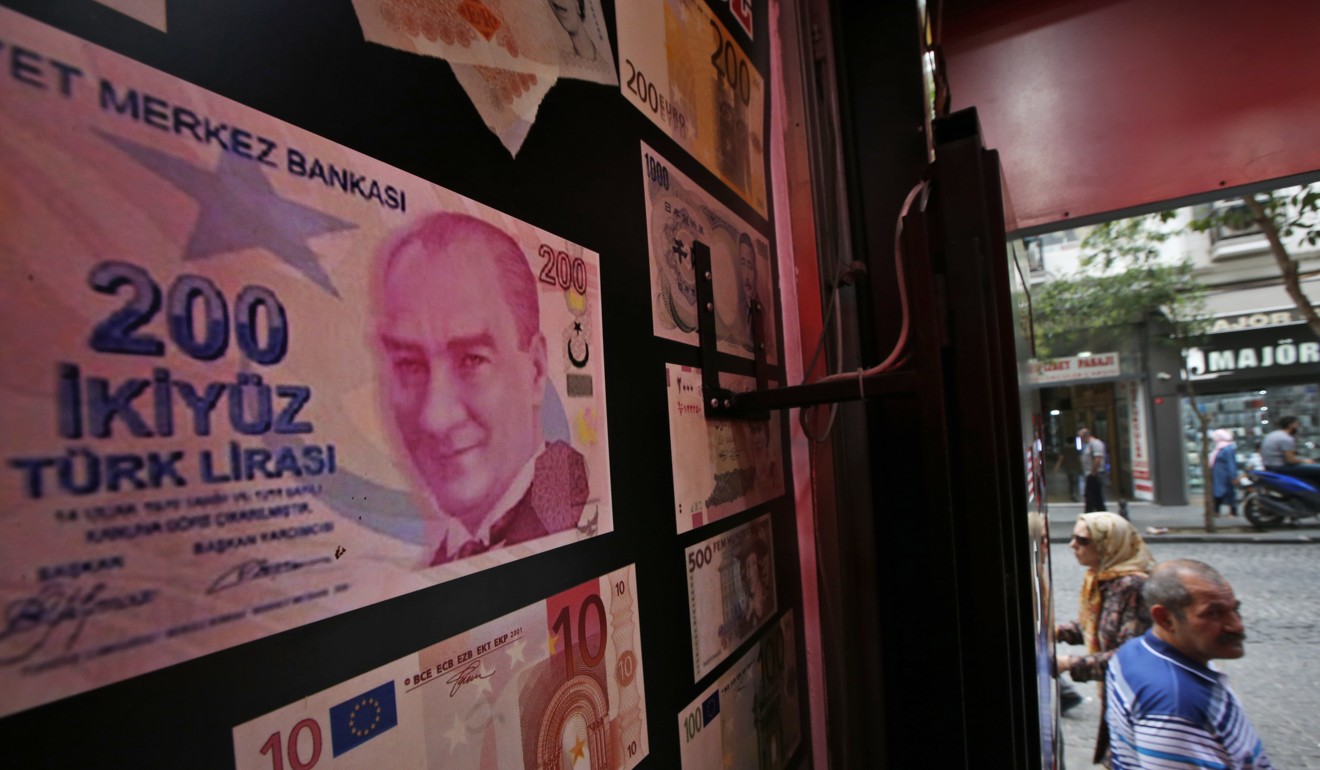
After Tencent’s profit slump, Chinese tech may trigger a bigger crisis in global markets than the Turkish lira
Nicholas Spiro says a Chinese tech-induced sell-off in the US stock market could do significantly more damage to broader sentiment than the Turkish currency crisis
For currency investors, there is little doubt about the source of the latest shock to roil markets. The collapse of the Turkish lira, which at one point last week was down more than 40 per cent against the US dollar, is seen as the chief problem, putting further strain on other emerging market currencies and raising fears of financial contagion.
Tencent’s shock profit slump caused a sharper one-day fall in the MSCI Emerging Markets Index – the leading equity gauge for developing economies – than on the day Turkey’s currency crisis erupted.
The greater sensitivity of emerging market equity investors to Tencent’s travails stems from the composition of the benchmark index.

Put simply, the performance of emerging market equities is closely tied to the fortunes of China’s tech behemoths.
According to the latest global fund manager survey published by Bank of America Merrill Lynch last Tuesday, a long, or overweight, position in both FAANG – the five US tech giants, Facebook, Apple, Amazon, Netflix and Alphabet’s Google – and BAT was the most popular trade in markets for the seventh month in a row.

Yet strains on China’s tech stocks – the shares of Alibaba and Baidu are down about 16.5 per cent and 18.5 per cent respectively since mid-June – threaten to bring out vulnerabilities in the US tech sector, which has turbocharged the rally in America’s equity markets, a run which on Wednesday will officially be the longest in history.
This year's strong gains in US tech stocks have led to a marked divergence between the FAANGs and the BATs – the MSCI China tech subgauge, which surged nearly 80 per cent in 2017, is in negative territory for the year and is currently trading at its lowest valuation relative to its US equivalent in nearly seven years, according to data from Bloomberg. Yet, the New York Stock Exchange’s FANG+ Index, a closely watched tech gauge that includes FAANG and BATs, is down more than 8 per cent in the past month, with more than a third of the decline occurring since Tencent reported its poor quarterly figures.
Make no mistake, a more severe Chinese tech-induced sell-off in the US stock market could do significantly more damage to broader sentiment than the Turkish currency crisis.
First, it could act as a catalyst for a sharper unwinding of the tech trade which has been one of the most important factors in the resilience of US assets. Investors are already concerned about the future growth prospects of some of the FAANG, with a staggering US$120 billion wiped off the value of Facebook’s shares on July 26 due to concerns about slowing sales growth.
Second, growing nervousness about Chinese tech stocks – and the regulatory and political risks confronted by the sector – adds to the plethora of concerns about the Chinese markets and economy, the most important determinant of sentiment towards developing economies. While other sectors in China’s battered equity markets, notably banks and real estate, are trading at low valuations, tech stocks remain expensive, increasing the scope for further declines.
Turkey’s currency crisis will doubtless rumble on, but it is souring sentiment towards Chinese tech stocks that pose a bigger threat to global equity markets.
Nicholas Spiro is a partner at Lauressa Advisory

